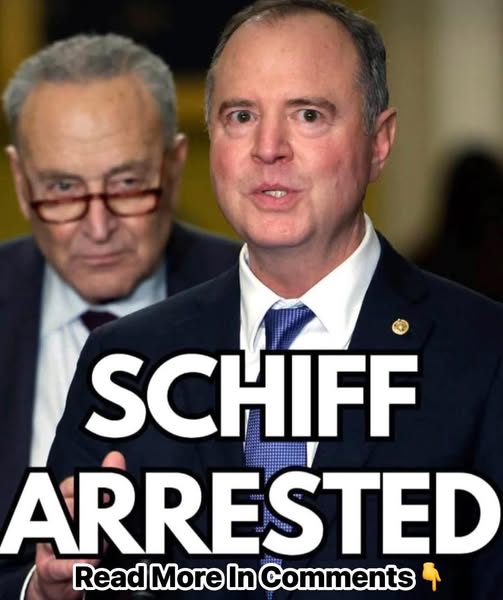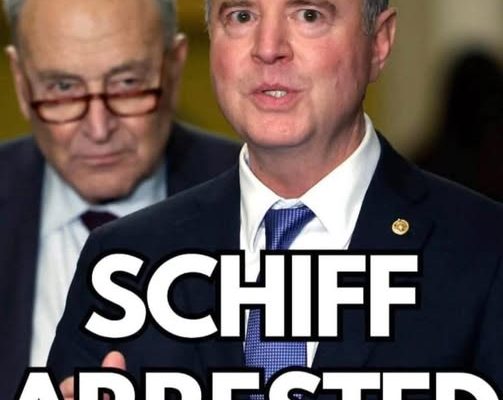
A trove of recently declassified FBI interview notes has revived serious allegations: a whistleblower claims that Senator Adam Schiff, during his tenure as a House Intelligence Committee leader, approved leaks of classified documents intended to damage Donald Trump’s presidency.
According to reports obtained by Just the News, a former Democratic intelligence staffer with years of experience on the House Permanent Select Committee on Intelligence (HPSCI) told FBI agents between 2017 and 2023 that Schiff authorized leaking classified information. The staffer, who was anonymously identified in the documents, stated they had been told those leaks would be used to build a case to indict President Trump. Just The News+1
The leaking, the whistleblower said, was intended to support the “Russiagate” narrative. In their interviews, the staffer alleged that Rep. Eric Swalwell was a likely conduit for at least some of the leaks. Just The News+2Just The News+2
In one of the most damaging passages, the staffer described being summoned to an all-staff meeting by Schiff, where he allegedly announced that the committee would leak specific classified intelligence unfavorable to President Trump — with the understanding that those leaks would be used to pursue legal action. The staffer objected, calling the plan “unethical” and “illegal,” but was reassured that they would “not be caught.” Just The News+1
Despite raising alarms, the whistleblower claimed the Department of Justice declined to act. According to the documents, DOJ and senior justice officials exhibited little interest in pursuing an inquiry. The staffer also says their objections led to their termination — a claim that went unanswered by DOJ in the memos. Just The News+2Just The News+2
Adding fuel to the controversy, the documents also allege that Schiff had been promised the role of CIA Director in a hypothetical Hillary Clinton administration — a promise that would have never materialized once Trump won. The whistleblower claims Schiff continued pressing for leaks even after the election loss. Just The News+1
These revelations come at a politically charged moment. Schiff, by then a senator, issued a strong rebuttal. He denied the allegations and framed them as “baseless smears” from former staffers with “unsubstantiated” claims. He also pointed to past investigations and internal DOJ assessments that found the whistleblower’s claims lacked credibility. Just The News
Meanwhile, House Republicans—spurred by Rep. Jim Jordan and other critics—have signaled they may summon both Schiff and former Attorney General Merrick Garland to testify. The aim: to shed light on whether intelligence was weaponized for political gain. Just The News
The legal and constitutional dimensions of these claims are complicated. One major hurdle is the Speech or Debate Clause, which provides Congress members immunity for their legislative acts. Schiff’s supporters argue that even discussing or authorizing leaks could be covered under that immunity. Critics counter that leaking classified documents may exceed the clause’s protections. The DOJ, in past internal reviews, reportedly declined to prosecute, citing uncertainty over whether such leaks were shielded by legislative immunity. Just The News+3Just The News+3Just The News+3
Still, the newly declassified memos raise more questions than answers. They don’t contain definitive proof that Schiff broke the law — they are largely assertions and allegations. Some may see them as politically motivated. Others interpret them as a long-overdue window into how political influence may have intersected with intelligence operations. Either way, they are forcing a reassessment of the trust placed in congressional oversight.
The controversy also ties into a broader pattern of classified leaks, selective disclosures, and press-intelligence interaction over the last decade. Critics argue that institutions on both sides have too often operated with blurred lines between valid oversight and partisan agenda.
For now, the public is left with a swirl of conflicting claims, unnamed sources, and declassified memos. What’s clear is this: the allegations, if taken seriously, shake the foundations of how we expect Congress and intelligence agencies to behave. The next step — testimony, oversight hearings, or possibly new investigations — will determine whether those foundations hold or crack under pressure.



